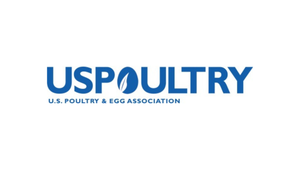Bipartisan support wins out as lawmakers from both sides of the aisle offer way to work together to get bill passed.

Many didn’t think it could be done — that is, having a bill that could garner enough Democrat votes in the Senate and still muster the support of House Republicans. In the end, Congress passed a bill Thursday that calls for mandatory disclosure of genetically modified organism (GMO) ingredients in food — something the House had previously said it wouldn’t accept. It took working together from both sides of the aisle to get the bill passed.
The Senate may have played its cards better, forcing the House to accept the Senate compromise in order to avoid the chaos of a patchwork of state regulations on GMO labeling. During the House Rules Committee vote Tuesday night, House Agriculture Committee chairman Michael Conaway (R., Texas) said he would have preferred the House’s voluntary labeling bill, which passed the House last sumer.
"With the Vermont (GMO labeling) law already in effect, we've simply run out of time," Conaway said. "While I prefer that House version, that wasn't in the cards. The Senate played their hand better."
Many in the House, as well as the industry, did not prefer the Senate final compromise bill but realized that compromise is more about getting a workable solution than getting everything you want.
In his floor speech ahead of the vote, House Agriculture Committee ranking member Collin Peterson (D., Minn.) said the bill represents a good compromise. “It’s another example of what the agriculture committee has consistently done so well. No one gets everything they want, but at the end of the day, I believe this bill will provide the transparency consumers crave while at the same time allowing continued innovation in food production.”
Maybe one of the most amazing feats of the bill’s passage was gaining the support of more than 1,000 organizations that stepped up in support of the bill.
“In the past, many of these organizations were at odds when crafting farm bills or other agriculture policy priorities,” said Senate Agriculture Committee chairman Pat Roberts (R., Kan.), who worked with ranking member Sen. Debbie Stabenow (D., Mich.) to get the bill across the finish line.
“The strong and unified support for our bill among these agriculture groups proves that we put forward a sound solution to biotechnology disclosure, but most important, it shows what can be accomplished for farmers when agriculture speaks with one voice. At a time when agriculture biotechnology is fulfilling an increasingly critical role meeting world demand for food, agriculture must speak with one voice to confront misinformation about its practices and operations,” Roberts noted.
Leah Wilkinson, American Feed Industry Assn. (AFIA) vice president of legislative, regulatory and state affairs, said in the 15 years she has been involved in the agricultural policy arena, she’s never seen the industry come together on an issue like it did with this one. “It was a great exercise for the food industry, agriculture and feed industry to all ban together to stand and protect technology that we know and need to have,” she said.
“Remarkable” was the word Pamela Bailey, president and chief executive officer of the Grocery Manufacturers Assn., used to describe the broad and bipartisan majorities coming together to pass the GMO disclosure legislation.
“Republicans and Democrats found consensus on the common ground that a patchwork of different state labeling laws would be a costly and confusing disaster for the nation’s food supply chain. They also joined together to give consumers more access to consistent and helpful information about genetic engineering,” Bailey noted.
“When we do work together, we can achieve goals,” Wilkinson said. “Hopefully, we can ride some of that momentum into other projects as well.”
After all, the farm bill will be back on the agenda before we know it.
About the Author(s)
You May Also Like





